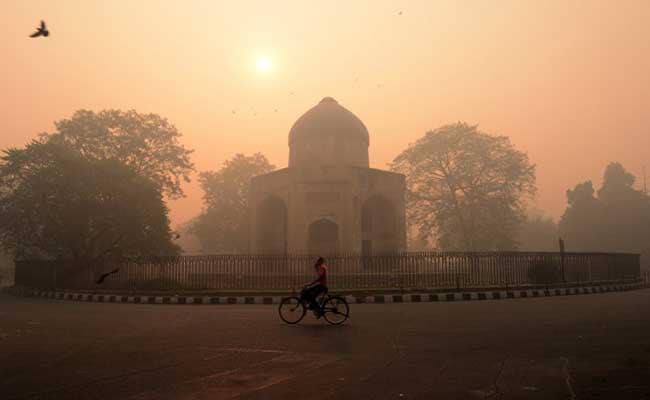
Green panel has recommended the return of odd-even scheme to regulate number of cars
New Delhi:
People in Delhi may have to pay four times the usual parking fees with a Supreme Court-appointed panel recommending emergency measures to tackle severe pollution levels. The decision to hike parking charges was taken at a meeting of the Supreme Court-appointed Environment Pollution Prevention and Control Authority (EPCA) to discourage people from using private vehicles over rising pollution in Delhi-NCR (National Capital Region).
The capital struggled with the worst smog and pollution this year, worse than a day after Diwali, as a brown haze hung heavy.
The green panel has recommended reduced fares in the Delhi metro for off-peak hours for at least 10 hours and the return of the odd-even scheme to regulate the number of cars.
The rapid fall in air quality and visibility began last evening as moisture combined with pollutants.
By 10 am today, the Central Pollution Control Board recorded 'severe' air quality, which means a Graded Response Action Plan would kick in.
If the situation deteriorates and persists for at least 48 hours, the task force will recommend shutting schools and enforcing the odd-even car rationing scheme.
 Arvind Kejriwal, the Chief Minister of Delhi, tweeted that he had asked his Education Minister Manish Sisodia to consider closing schools for a few days. "Every year, during this time of the year, Delhi becomes a gas chamber for almost a month," Mr Kejriwal said in tweets, calling for a solution.
Arvind Kejriwal, the Chief Minister of Delhi, tweeted that he had asked his Education Minister Manish Sisodia to consider closing schools for a few days. "Every year, during this time of the year, Delhi becomes a gas chamber for almost a month," Mr Kejriwal said in tweets, calling for a solution.
The last time air had turned 'severe' was on October 20, a day after Diwali festivities, when firecrackers were burst across the city.
Since then, the pollution monitors have been recording 'very poor' air quality, which is comparatively better than 'severe' but alarming according to global standards.
A 'very poor' Air Quality Index comes with the warning that people may develop respiratory illness on prolonged exposure.
According to private weather forecasting agency Skymet, wind from neighbouring Punjab and Haryana, where paddy stubble burning is in full swing, has started entering the city during the afternoon hours.
The capital struggled with the worst smog and pollution this year, worse than a day after Diwali, as a brown haze hung heavy.
The green panel has recommended reduced fares in the Delhi metro for off-peak hours for at least 10 hours and the return of the odd-even scheme to regulate the number of cars.
The rapid fall in air quality and visibility began last evening as moisture combined with pollutants.
By 10 am today, the Central Pollution Control Board recorded 'severe' air quality, which means a Graded Response Action Plan would kick in.
If the situation deteriorates and persists for at least 48 hours, the task force will recommend shutting schools and enforcing the odd-even car rationing scheme.

Delhi has experimented with the odd-even traffic plan to check runaway air pollution
The last time air had turned 'severe' was on October 20, a day after Diwali festivities, when firecrackers were burst across the city.
Since then, the pollution monitors have been recording 'very poor' air quality, which is comparatively better than 'severe' but alarming according to global standards.
A 'very poor' Air Quality Index comes with the warning that people may develop respiratory illness on prolonged exposure.
According to private weather forecasting agency Skymet, wind from neighbouring Punjab and Haryana, where paddy stubble burning is in full swing, has started entering the city during the afternoon hours.
Track Latest News Live on NDTV.com and get news updates from India and around the world

